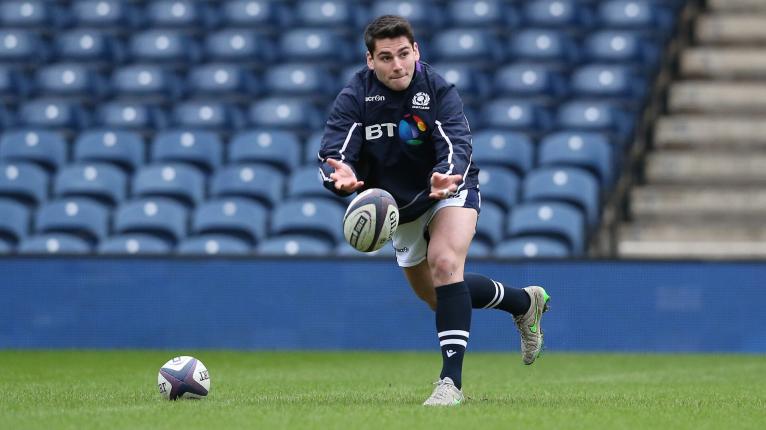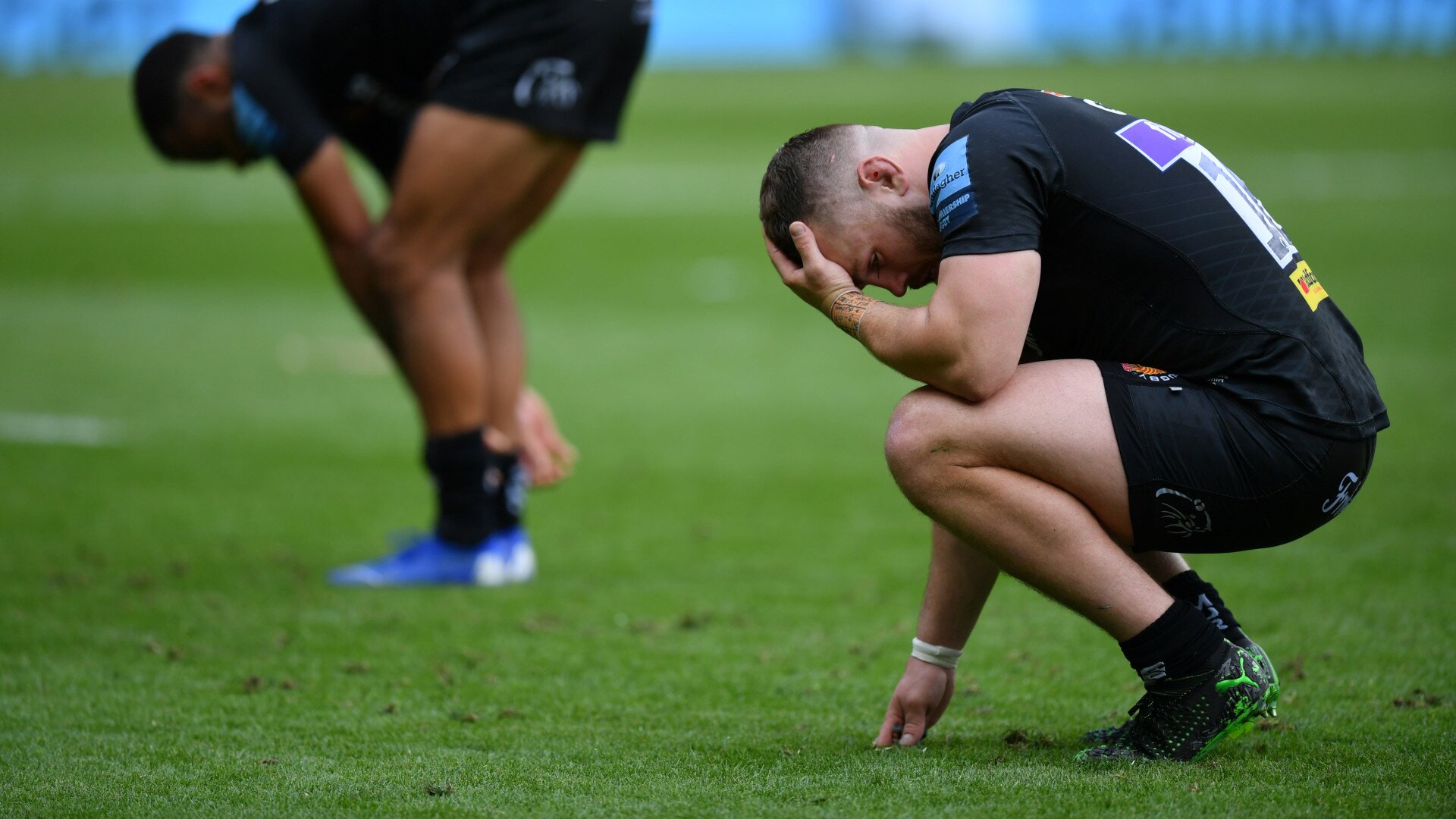'Guys are out of jobs' - Rugby agent details the brutal decisions facing players as the market implodes

There is a World Cup thundering down the tracks and rugby has never been more box-office, yet seldom has the life of the rugby agent been so brutal.
Clubs leaking money, no longer prepared to pay what once they were. Incentives in England and regulations in France governing the selection of foreign players. More accomplished operators competing for fewer vacancies and toiling to find new clubs.
To the agents scrambling to shift their players, you might say dry your eyes. Agents have levered up the salaries and profited handsomely from the lavish riches on offer, so how dare they moan when the gravy train falters.
Though the market’s stinginess has made his job significantly harder, Tom Beattie takes a more pensive view. His company, TDB Sports, represents a small but prominent cohort of players, including Don Armand, Nick Grigg, Sione Kalamafoni and Demetri Catrakilis.
“For the long-term vision of rugby, the salaries need to have a period of stability,” he says. “That’s the main reason guys are out of jobs. Clubs are being very strict on the salary caps, and that’s meant that unfortunately some guys are left in a position where there isn’t that contract that there was a couple of years ago.
“It’s certainly a buyers’ market this year, because of the number of players without a contract. A lot of clubs can wait a bit longer and perhaps a player has to take a reduction in salary to get that contract.
“What’s happening now is that realism is coming back and I don’t think it’s a bad thing. I want rugby to grow, and have a period of sustainability and stability, so it can grow.”
In England, clubs are financially incentivised by the RFU to field more English-qualified players. Relinquishing your EQP status can mean severely hindering your chances of a Premiership contract.
France was once the land of great opportunity for foreigners, but the situation there is more labyrinthine thanks to the nuanced JIFF (Joueurs Issus des Filières de Formation) quota system. To meet the JIFF criteria, as French rugby expert James Harrington explains, “a player must have spent at least three seasons in a French club’s academy before they had turned 21, or had been licensed to play in France for five seasons before the age of 23”. Next season, Top 14 clubs must have 19 JIFF players in their 35-strong squads, and must select at least 14 on their match-day.
These numbers have gone up this summer, and so have the punishments for breaking the rules. Failure to hit the JIFF target will now result in points deductions – increasingly stringent attempts to restore the beleaguered national team to its former glory.
Ireland’s provinces and Scotland’s pro-teams are controlled by their unions, who quite sensibly prioritise the fostering of talent that can represent them on the Test stage. And “Project Reset” is supposed to deliver, among many things, financial sustainability to the Welsh regions, although the venture so far has largely brought rancour and confusion.
The rub of all this is that some players – not the real galacticos, but those with a handful of caps or a fledgling Test career beckoning – are forced to be increasingly calculating about their international prospects.
“A player can go to the World Cup this year and be absolutely fantastic, one of the stars of the show – it doesn’t mean they’ll come back and get a contract,” Beattie says.
“That is the market we’re in at the moment. There are no guarantees. You can be absolutely fantastic and have no job. What’s best for the player’s family?”
It shouldn’t be this way, but often it is. International rugby ought to be the shimmering pinnacle of the game, with the World Cup the jewel in its crown, but often it is not. In some cases, the pragmatism trumps the romance.

Sam Hidalgo-Clyne, the Scotland scrum-half and one of Beattie’s clients, wasn’t called up to Gregor Townsend’s training squad. Just as well, for if he had been, Hidalgo-Clyne would have had to decline. Not because he didn’t long to be there, but because he was hopelessly out of the picture at Scarlets and wanted to leave, because his chances of making the plane to Japan, let alone seeing any action, would be slim, and mostly because it would have meant spending the summer training with Scotland, rather than joining a new club for pre-season.
“Sammy’s a perfect example,” says Beattie. “I had so many conversations with clubs who like him. Why wouldn’t you like him? He’s a good player, but as a Scottish international, he’s non-French or English-qualified, so he doesn’t make their quotas.”
Hidalgo-Clyne has taken up a short-term contract at Racing 92, providing cover during the World Cup. His future beyond November remains murky, but in this fiendishly tough market, at least he’ll have the chance to play at a behemoth club and put himself in the shop window.
“Two or three years ago, a Top 14 or ProD2 squad make-up was generally 60:40 foreign:French, now it’s generally flipped,” says Beattie.
Dave Ward's patience pays off after anxious wait ? https://t.co/fO7UV2QMZU
— RugbyPass (@RugbyPass) July 2, 2019
“For a foreign player, even if you’re an English international, it’s that much tougher to go to France. The regulations often mean they can’t go –not because they’re not good enough, just because there isn’t space within the quota.
“Some agents are struggling because they’ve got a lot of players on their roster and they can’t get clubs for them all.”
There are horror stories emanating from the Top 14 alleging teams are pressuring their particularly vulnerable Pacific Islanders to shun the World Cup.
“A lot of the time, the French clubs want the guy that’s uncapped or basically saying, ‘I’m not going to play international rugby’,” says Beattie.
“And if you’re a foreign player, you kind of have to add something different in your contract, which could be, ‘right, I’m prepared to give up international rugby because I need this contract to look after my family’.
“I’ve had those conversations with players. They’re passionate about their countries, but they need a job. It’s a short career; if you get ten good years in rugby you’ve had a great career. You’ve got bills to pay, a roof to keep over your head, a family to feed.
“And it’s becoming a buyers’ market, because supply of players exceeds demand.”
Another of Beattie’s clients, the Canada prop Jake Ilnicki, has just helped Seattle Seawolves retain the Major League Rugby title. The competition is only in its second year, but the hope is that it can help chisel rugby into the American sporting psyche.
“For rugby to work, I absolutely believe it needs a strong America,” Beattie says. “That could make the global game a completely different landscape in terms of sponsors, TV monies, interest, and it could really benefit us over here as well.
ANONYMOUS POLL
Rugby agents have had their say on the best and worst Premiership clubs in a revealing RugbyPass poll
– writes @alexshawsport ??? #GallagherPremiership https://t.co/UHXGMW40JL
— RugbyPass (@RugbyPass) March 21, 2019
“If they can get a part of the core sports market, even a small part, we will see a massive effect on the whole of world rugby.”
For now, though, Beattie fears there is a danger that the prestige of international rugby will be eroded, players swayed towards forgoing caps or reluctant to tie themselves to a country because of the damage it may do to their bread-and-butter club career.
“I want my players who want to play international rugby to play international rugby, because it’s an amazing thing to achieve,” he says.
“The factors around that in terms of protecting their livelihood unfortunately need to be discussed. The sad thing is that you don’t want to have this club v country. No-one wants that, but it’s case by case, and all I can do is to give the player the options.
“I’ve had to put some offers to players before along those lines. I’ve given them the menu of different options to consider, and we’ve had to have those discussions, and not nice discussions. I really hope it can be solved.”
WATCH ‘NADOLO’
Nadolo explores the life and career of Fijian rugby legend Nemani Nadolo.



































































